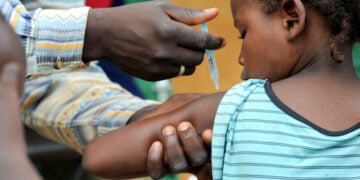Federal government has said that investing in family planning initiatives can significantly reduce the country’s maternal mortality ratio by 30 percent.
Special Adviser to the President on Health, Dr Salma Anas-Kolo, stated this at the 2024 World Population Day National Symposium, themed “Embracing the Power of Inclusive Data Towards a Resilient and Equitable Future for All,” organised by the Population Association of Nigeria (PAN) and supported by the development Research and Project Centre (dRPC), in Abuja.
Dr. Anas-Kolo emphasised the critical role that access to family planning services plays in improving maternal health outcomes, saying “Family planning is more than a health service; it is a critical component of maternal and child health.
“By allowing women to space and plan their pregnancies, family planning reduces the risk of complications that can arise from closely spaced or unintended pregnancies.”
The special adviser noted that the maternal mortality ratio, which measures the number of maternal deaths per 100,000 live births, remains a significant concern in many parts of the world, particularly in developing countries
“According to recent studies, providing comprehensive family planning services can prevent up to 30 percent of maternal deaths.
“This is because planned pregnancies allow women to seek timely prenatal care and ensure they are in optimal health before conceiving,” she added.
Also speaking, the director of projects at dRPC, Dr Stanley Ukpai, highlighted some of the barriers to accessing family planning services as cultural, stigma, illiteracy and inadequate healthcare infrastructure.
He said addressing these challenges requires a multifaceted approach involving government policies, community education, and international support.”
He called on state governments to prioritize family planning services in the global effort to reduce maternal mortality.





